On December 10, Network State co-organized a Webinar with 3 Think Tanks:
Red Lantern Analytica (India), RIEAS and Pericles Institute (Greece).
The topic was “Indo-Greek-Armenian Strategic Cooperation to Tackle Caliphate Designs”.
Network State citizens Leonidas Chrysanthopoulos, Michael Nersisyan, and Vahram Ayvazyan took part in the webinar as speakers.

Other speakers of the webinar included Director of the Research Institute For European & American Studies, Professor John M Nomikos; Associate Fellow Europe & Eurasia Center of MP-IDSA, Dr. Swasti Rao; Senior Fellow at the Institute of Peace & Conflict Studie, Abhijit Iyer Mitra; and Journalist and PhD Candidate Uzay Bulut.
Opening the webinar, Dr. J. Jeganaathan, Assistant Professor, Department of National Security Studies, Central University of Jammu, stressed that: “The Caliphate design is coming in a new form, which we call Digital Caliphate, to perpetuate their idea of establishing a caliphate.”
“In India, a large number of Youth in Southern states are attracted to the new design of the Caliphate,” he added, before stressing for an extradition treaty with Armenia and an extension of the global fight against terrorism. Paul Antonopoulos, Editor of Greek City Times, moderated the rest of the session. He elaborated on the title and observed, “We enter a dangerous period where the global system is changing with the emergence of several great powers rather than the previous uni-polar & bi-polar world. The new system
emboldens countries like Turkey, Azerbaijan, and Pakistan to challenge the current system and promote their interest and agenda, which reflects the new Caliphate.”
Leonidas Chrysanthopoulos explained the Caliphate, what it means, and its goals. He said, “Caliphate also means that many countries desire to recreate the power and glory of Islam and to expand Islam and Sharia law worldwide.”
In order to better counter Caliphate designs, he suggested how Greek had taken the initiative to create a common forum for ancient civilizations. He said though that the current Greek government has not taken much of an interest in it and that India or Armenia should take up its mantle.
Similarly, Armenia, Greece, and India have one thing in common, i.e. each one of them being ancient civilisations and were in contact with each other.
According to Vahram Ayvazyan, in order to tackle caliphate designs and anti-ancient civilization politics and policies, we need to institutionalise networking between the three of us.
He added, “To tackle the Turkey, Pakistan and Azerbaijan axis and bad marriage against ancient civilisations like India, Greece, and Armenia, we need to institutionalise networking between the three countries and people on three levels – Government, Public Diplomacy and Diaspora cooperation.”
“Information sharing and active dialogue will help us be proactive instead of reactive,” he added.
Abhijit Iyer Mitra started his intervention on what unites Pakistan, Turkey, and Azerbaijan. He observed that Pakistan, Turkey, and Azerbaijan use religion as a binder for all their internal issues in face of their identity crisis.
He also elaborated on how Pakistan keeps changing its ethnicity according to convenience. The country is a classic case of fluid identity, with one terrorist group for every denomination.
Abhijit said that Turkey had adopted a sub-state model of terrorism using terrorism to interfere in Syria and many other places. Shias in Azerbaijan are adopting much Sunni terrorism. Sunni terrorists have flown from Turkey and Syria to the region to fight against Armenians.
Professor John M Nomikos proposed that India become an observer of the East Mediterranean Forum.
He said, “India is a country that can offer much security to Mediterranean countries. India, Cyprus and Greece’s Navy should be more active. The collaboration between these three countries is a necessity.:
The professor also suggested utilising “the power of the Armenian and Greek diaspora more constructively and efficiently,”
Michael Nersisyan began highlighting the Russia-Ukraine war and emphasised that new ones are emerging, for example, the Azerbaijan and Israel alliance aimed at Iran. On the other hand, Israel has complex relations with Turkey.
Azerbaijan has channelised all its energy and resources against Armenia, he stressed, before strongly advising that Greece, Armenia, and India take each other’s conflicts and problems seriously as they matter in the grander scheme.
There is a lack of information asymmetry at all levels among India, Armenia, and Greece, which creates difficulty in strengthening the alliance, observed Dr. Swasti Rao at the onset of her lecture.
Moving ahead, she highlighted how India is supporting Armenia by selling Made in India weapons. She also elaborated on the commonalities between India and Greece’s military industry in light of the close relations of both the nations between Israel and France for their defense equipment.
The last speaker, Uzay Bulut, elaborated on the ‘Ethnic Cleansing and Violent Islamisation – The Case of Cyprus.’
In 1974, Turkey invaded the Republic of Cyprus twice; what followed was the ethnic cleansing of Christianity through forcible displacement. Turkey displaced ethnic Greeks from the invaded region through rape, murders, forced disappearances, and other atrocities.
Turkey has occupied 36% of the sovereign territory of Cyprus and 57% of the coastline of Cyprus since 1974. Cyprus is facing an existential threat from Turkey. Azerbaijan committed the same atrocities against Armenians.
They desire to revive the so-called Turkish rule from the Far East to China and pursue their Jihadist goal. She concluded by saying that Cyprus should be part of the alliance between India, Armenia and Greece, and all the countries facing threats from the Jihadist countries.
With the conclusion of the webinar, a decision to form a board of civilisations was taken during the webinar, which will concentrate on forging closer ties of India, Greece and Armenia by finding and publicising about the historical ties between these ancient civilisations.
Mr. Siddhartha, a Senior Researcher at Red Lantern Analytica, the brainchild behind the webinar, delivered the vote of thanks, after which the session was brought to a close.

